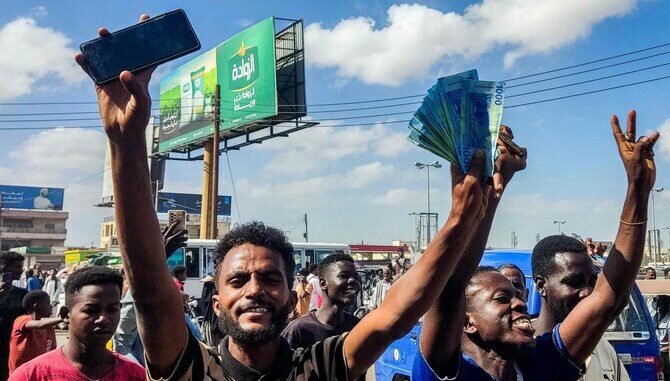
Dozens of Sudanese protesters took to the streets of Port Sudan on Tuesday, December 31, to oppose the Government’s decision to partially replace banknotes in areas under its control in the war-torn country.
In response to the demonstrations, the Government extended the validity of the 500 and 1,000 Sudanese pound notes, initially set to be recalled, in one week.
The war between the Sudanese army and the paramilitary Rapid Support Forces (RSF), ongoing since April 2023, has left tens of thousands of dead, displaced over 12 million people, and severely damaged the country’s infrastructure. The conflict has also crippled the economy, with most banks shut down.
The government, now based in Port Sudan, stated that the banknote replacement in army-controlled areas in the north and east aims to “protect the national economy and combat criminal activities.” However, the move has heightened concerns about further dividing the country. RSF-controlled regions, including much of Darfur in the west and large parts of the south and center, have rejected the new banknotes. The RSF has accused the army of attempting to divide the nation and banned the use of the new currency in territories under their control.
In central Sudan, the capital Khartoum remains divided between the two forces. The previous exchange deadline caused disruptions in Port Sudan on Monday, as trade and transportation came to a halt. Bus drivers, gas stations, and shopkeepers refused to accept old notes, while banks provided only limited quantities of the new currency. Protesters on Tuesday waved bundles of expired banknotes, chanting, “What are we going to do with them?”
The economic turmoil has drastically devalued the Sudanese pound. Before the war, one US dollar was equivalent to 500 pounds, compared to 2,500 pounds on the black market today. Sudanese Information Minister Khalid al-Aiser announced the extension of the deadline to January 6, stating that it aims to give citizens more time to complete the currency exchange process “easily and smoothly.”
